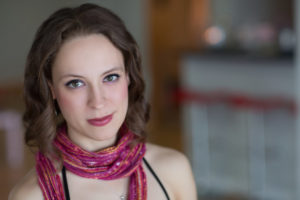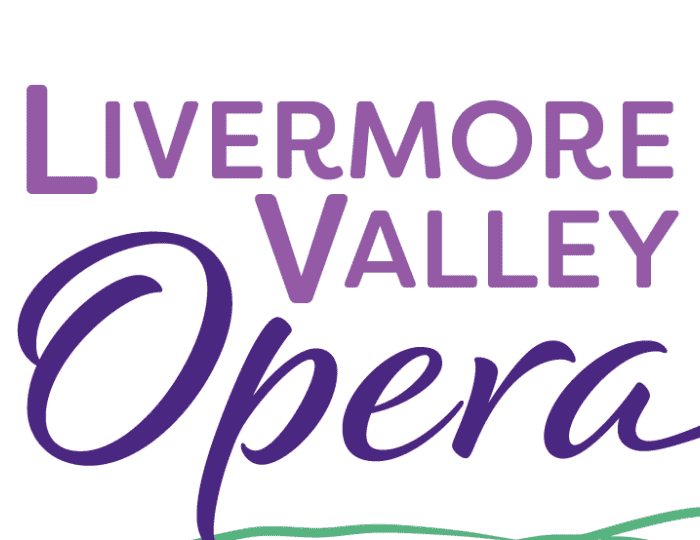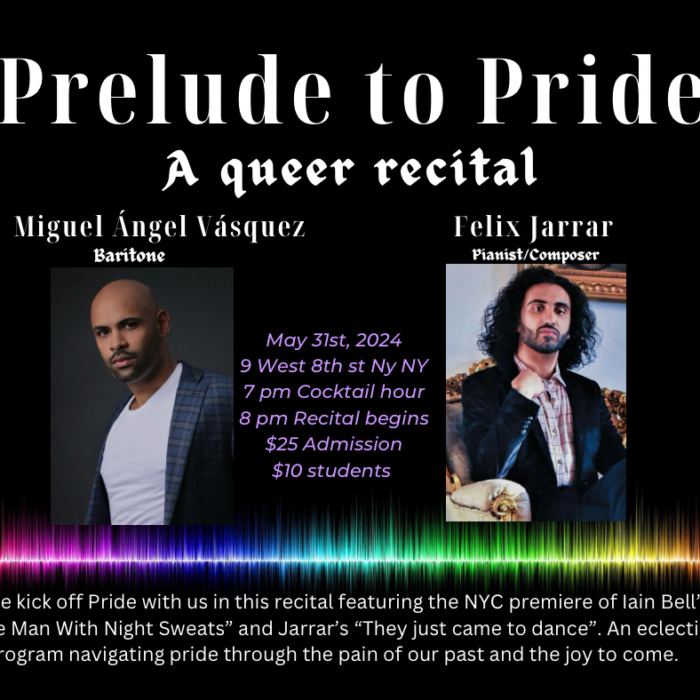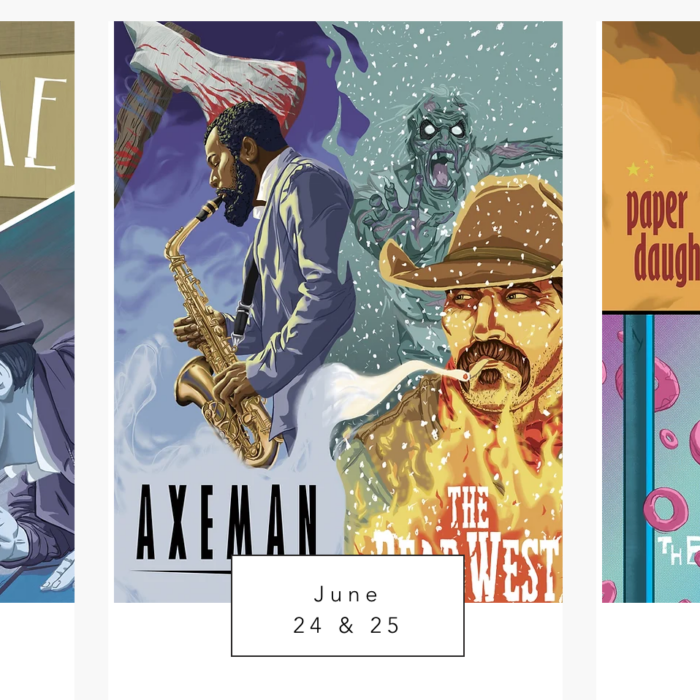
Q&A : Mezzo-Soprano & Composer Lisa Neher on Creating the One Voice Project Micro Opera Festival
By David Salazar(Photo credit: Alisabeth Von Presley)
For opera artists around the world, COVID-19 was a major blow. Not only did they lose the opportunity to work, but in most cases, they have often been the last to get the chance to make their return. While several industries around the world have opened and closed repeatedly with the differing waves of the pandemic. In the meantime, while some opera companies (mainly in Europe) have tried to brave the circumstances and finds ways back to live performances, almost all (with very few exceptions) in the U.S. have been on permanent lockdown for a year.
That hasn’t stopped artists from being creative and finding new means of expression. It hasn’t stopped companies from looking online for a new way to present opera.
Few have done what Lisa Neher has created. During the pandemic, the mezzo-soprano and composer spoke to several of her colleagues, all seeking out a creative outlet during a time where few existed. So she set out to create the One Voice Project micro opera festival which is set to premiere between March 22-26.
The festival consists of five short operas, all composed by Neher to librettos by Kendra Preston Leonard. Moreover, all of the operas were created in collaboration with the artists who will be performing in and recording them.
OperaWire spoke to Neher about her career as a singer and composer as well as her inspiration for the Micro Festival.
OperaWire: Where and when did your opera journey begin?
Lisa Neher: My Grandma Pat loves opera and always had season tickets to Seattle Opera. As kids, she always invited us, and to my embarrassment, I was so biased from cartoons and other pop culture that made fun of opera that I turned her down for years! It wasn’t until I started taking classical voice lessons as an undergrad music major at Lewis & Clark College that I took the time to sit down and watch and listen to opera, and then I fell in love with the scope of emotions and stories told in this art form. Opera sounds as big as we feel.
After my first year of college, I finally took my Grandma up on her offer and we had a great time seeing “The Pearl Fishers” and many others at Seattle Opera over the years. My first opera performance was playing Cherubino in our opera scenes program at Lewis & Clark, and I wrote an opera about St. Therese of Lisieux which was performed on my senior composition recital.
OW: When did you start composing and what inspired you to go down this path?
LN: I’ve been a professional composer for years and I have a broad catalog of works ranging from opera to chamber music to orchestra to art song and more.
As a kid, I was always making up songs and humming my own soundtracks as I played with my toys. My piano teacher in high school helped me begin writing down my ideas and I performed several compositions at our yearly recitals. But I didn’t really understand that there were living concert music composers until I attended Lewis & Clark College.
Learning about the music of Benjamin Britten, Gabriela Lena Frank, Phillip Glass, and more totally opened my eyes and I was hooked! I took courses and lessons in composition from Forrest Pierce and later Michael Johanson. My undergraduate degrees are in Music and Theatre and in the music program I took every class for a composition degree and every class for a voice degree… I can’t remember which was my official degree recital. I went on to earn a Master’s in Composition at University of Kansas and then a doctorate in Voice Performance and Pedagogy from the University of Iowa.
OW: Who are the composers who inspire you most?
LN: My own mentors inspire me so much: Gabriela Lena Frank, Forrest Pierce, and Michael Johanson. In addition to her amazing music, some of which I’ve been lucky enough to perform, Gabriela Frank’s leadership in arts citizenship, community building, and mentorship has set the bar for me for what we need to be doing as classical musicians in the 21st Century.
I also love Benjamin Britten, Augusta Read Thomas, Rachel Portman, Francis Poulenc, Ralph Vaughan-Williams, my favorite recording artists Enya and Loreena McKennit, and my favorite movie composers John Williams and Jerry Goldsmith.
OW: Let’s turn our attention to the Micro Opera Festival. Where did this idea come from? Did you compose them during the lockdown?
The inspiration is threefold.
I’ve been pursuing solo vocal performance for seven years through my call for scores and concert series, The One Voice Project. Singers don’t have unaccompanied solo repertoire like instrumentalists do and that shuts us out from venues and performance opportunities. Plus, the voice, just like instruments, is totally viable and expressive on its own. I’ve wanted to take that idea into the opera world for a long time.
Second, I took part in Rhymes With Opera’s Pocket Opera Workshop (virtually) last summer, and for that we were invited to write an unaccompanied work of up to 3 minutes. Kendra Leonard and I decided to take that as a challenge to create a three-minute solo opera that could stand entirely on its own, and wrote Par for the Course. That work was workshopped privately by the amazing Elisabeth Halliday-Quan, during the workshop, but the workshop was only 1 week long and so understandably didn’t include a public premiere. But that gave us a model for what we could create.
Finally, during the pandemic, I spoke to so many singers who were yearning for an artistic outlet, a way to connect with audiences and share their artistic brilliance, particularly in the form of opera: storytelling, stage movement, and theatre. Traditional opera will likely be one of the last performance forms that will be safe to return to, because of the performing forces and the “super spreader” nature of singing. While I couldn’t fix the canceled gigs or the income loss all on my own, I did realize we could work together to channel their talents and connect them with audiences.
OW: What are the operas you will be presenting?
The works are:
- “Wide Awake in the New City:” a singer moves to a completely new place in the middle of the Covid-19 pandemic and feels cut off and alone. He finds a simple source of hope by looking out his window. Composed for Hugo Vera, tenor.
- “Par for the Course:” Babe Didrikson, superstar athlete in the 1940s, has won every golf tournament on offer—except the men-only U.S. Open. What happens when the PGA rejects her bid to beat the men on their own turf? Performed by Audrey Yoder, soprano.
- “Momentum:” Runner Kathrine Switzer was the first woman to compete in the Boston Marathon. Her race is interrupted by a physical assault on the course, leading her to question what she’s doing. Composed for myself, mezzo-soprano.
- “Woman Waits with Sword:” In 17th century France, Alberte-Barbe D’ernécourt, Dame (noble lady) de Saint-Baslemont, has been protecting her people from invaders during the Hundred Years’ War. But when an intruder tries to claim her home and ignores her because of her sex, she becomes the Chevalier (knight, and assumed male) de Saint-Baslemont and challenges him to a duel he cannot turn down. Composed for Margaret O’Connell, mezzo-soprano.
- “Now Available:” Anxious about his musical career, the treatment of performers by opera companies and major ensembles, and how Covid-19 will change the shape of future performances, a singer moves from angst to optimism. Composed for Zach Finkelstein, tenor.
The operas were all composed during lockdown, beginning with “Par for the Course.” The other four opera plots were designed in collaboration with the performers, and in the case of Wide Awake in the New City and Now Available, the stories were inspired by the singers’ experiences this last year. I am a runner and triathlete and that inspired our choice of Kathrine Switzer’s story for my opera.
OW: You collaborate on the operas with Kendra Preston Leonard. What makes her the ideal librettist for your music?
LN: Kendra’s words are modern and direct, they have an immediacy and a clarity that gets right to the heart of dramatic action. She weaves into these beautiful poetic phrases that set my imagination on fire, without becoming overly flowery. That fits my musical style so well because my goal is to express the drama, the action, the “doing” of theatre but also to have moments of reverie or aria where time suspends and we get to live in a feeling. Kendra is a musicologist and so we can easily talk about how the text inspires musical form and she gets it if I say I need a little more text here so I can build the musical climax or these words and this rhythm are in conflict, can we rephrase a little? She’s incredibly flexible and generous as a collaborator, and that is a wonderful gift as a composer. Plus, we just have so much fun working together!
OW: What is your process for composing an opera?
LN: The process begins with conversations with my collaborator, in this case, Kendra. We talk about the themes and stories we’d like to explore, and we draw inspiration from historical events or from talking to the performers we’re writing for. As Kendra writes, we continue to talk about each character’s arc, what the conflict in the story is, what the obstacles each character faces, and what space we’re leaving for staging and physical storytelling. I have a degree in theatre and so those theatre aspects are always front of mind for me. Once the libretto is complete, I spend time speaking it dramatically, writing it out, imagining possible ways the story might be staged.
From this, I get ideas about how to divide the libretto into musical sections of recit-like setting versus aria, where tempo or texture shifts will be, and where the music will reach a climax. Then I start to generate ideas by singing or playing the piano. That can take a long time or can come very fast—every work is a different challenge. Sometimes in the process, I might go back to Kendra with a request for more words here or can we tighten up the words a bit there, and if she’s open to that (which she always is, she’s so incredibly flexible), the libretto will adapt a bit.
OW: Of the operas you composed for this festival, which one was the most challenging and how did you overcome this challenge? What did you learn from the experience?
LN: The most challenging opera for me was my own, “Momentum!” This opera tells the story of Kathrine Switzer, who was the first woman to register for and run the Boston Marathon, and while she ran, she was attacked on the course by the race director. I got a little frozen here as my director mind kept trying to imagine how I was going to stage and film this. It’s a monodrama so there’s no other actor to grab me, plus somehow, I needed to represent the physical action of running.
While some of these operas can easily be set in someone’s living room, I felt that to be convincing, I was going to need to record myself outside. What I’ve learned from the experience is that while it is a strength to write for myself because the composing can inspire the singing and the staging and vice-versa, it is also helpful at times to compartmentalize—write the piece and trust that Director Lisa will find a way to stage what Composer Lisa has written.
OW: How does being a singer influence your composition style?
LN: The subjects I write about are almost always somewhat narrative in nature, and I tie that 100 percent to my background in theatre and to being a singer. Even in purely instrumental works, I have to have some kind of narrative or image or animal I’m channeling—that’s what leads to my most creative ideas. Because I’m a professional singer and voice teacher, I have an intuitive understanding of how the voice works, of what is going to feel good, how to approach a high note or set up a big leap, how long to stay in one tessitura or another. And I’m influenced by natural speech rhythms.
OW: What are the advantages in your view of being a performer when you compose music?
LN: There are so many advantages to being a performer and composer. I have such a rich network of fellow performers to collaborate with and that network grows organically with every gig. I get to hear performers talk shop about what they love and what they struggle with in new music, and about where there are gaps in the repertoire.
The plots for Hugo and Zach’s operas both came from conversations about what they wanted to sing about, what stories they hadn’t yet told. As I compose, I’m always merging what I am being called to write musically with what performers tell me they yearn for, what makes them feel like a hundred bucks, what shows off their greatest strengths. That leads to really fulfilling collaborations all the way around.
OW: I would like to know a bit more about the performers in the festival and how they became involved? Have you worked with them before?
LN: The first performer to get involved was tenor Zach Finkelstein. We met via social media during the pandemic and he was one of many singers I talked to last fall who was experiencing this loss of a creative outlet. With the Rhymes With Opera workshop fresh in my mind, I threw out the idea of writing him his own mini-opera and he said yes!
Kendra and I had “Par for the Course” written through the Rhymes With Opera workshop and we knew we wanted to produce a public premiere of that, so we thought, why not make an entire festival of these mini operas? We made a list of singers who had the combined skill sets of being fantastic singers, actors, and directors and who might be willing to dive into the world of self-recording and producing. We knew this wouldn’t be for everyone but we just started down the list asking people and everyone we asked said yes! So clearly, we have to do this again so we can work with more of our wonderful singer colleagues.
Kendra had worked with mezzo Margaret O’Connell before, and it’s been a total joy for me to get to know her through this process. Audrey Yoder and I were classmates at University of Iowa and performed in several operas together there and Hugo Vera and I were classmates at University of Kansas. Hugo runs a summer opera company, Lawrence Opera Theatre, which I performed with in the past, so I knew he had great directing chops.
OW: Finally, what do you hope audiences take away from this experience? What are you excited for them to experience?
LN: My mission as a composer and performer is to invite audiences into a place of connection, inspiration, and open-heartedness. Story, particularly musically infused story because, is such a powerful medium to feel connected to each other and to stand in one another’s shoes—to see and to be seen. I hope audiences see something of themselves in these stories and I hope that they get a glimpse into the lives of others. And I hope they have a good time and that their idea of what opera is and what opera can be gets shaken up a little bit!
For myself, it’s such a thrill to work with these fantastic performers, who are also so creative as directors, costumers, etc…they really have to do it all, and they’re so multi-talented! Plus, they sound like a million bucks! It never gets old witnessing an artist breathe life into a piece that I have written. I can’t wait to sit back and enjoy their performances!


